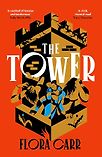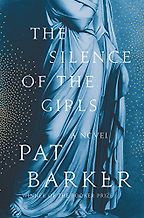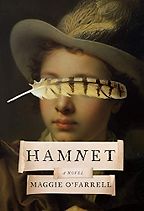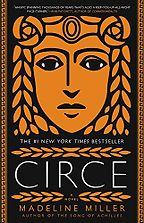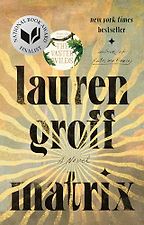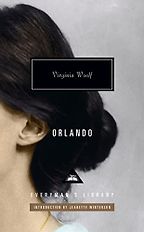Feminist historical fiction, that is, that family of novels reinterpreting the past through the female gaze—is booming. Why do you think that is?
It’s so interesting. I looked at my book choices and realised that both Pat Barker’s Silence of the Girls and Madeline Miller’s Circe came out in 2018. I think the #MeToo movement had an impact on how they were received.
With my own book, The Tower, there has been some focus on the way I’ve portrayed women and, specifically, women’s bodies. I try hard to portray women’s bodies in an authentic way as possible. There’s been this idea that in doing so I am modernising Mary Stuart, which I find amusing. I portray things like menstruation or childbirth, the difficulties women encounter, all of which has been happening since the beginning of humanity.
Yet, I think, the key thing is that we, as readers, are more comfortable looking at that. I think, for a long time, women’s bodies have either been romanticised or hidden away. Now we are more comfortable looking at—for want of a better word—the grotesque in women. And we are more comfortable in reading women who are flawed and are anti-heroes.
For a long time, Mary Stuart, was always portrayed as either a doomed romantic queen who was there for men to save, or she was portrayed as the jezebel to Elizabeth’s virgin queen. I don’t think either of those portrayals get to the truth of who she was as a person. I don’t think they do justice to her. So with The Tower, I wanted to delve into this very complex, flawed, charismatic person.
Right. Your book, The Tower, is a historical novel that fictionalises the imprisonment and forced abdication of Mary, Queen of Scots. Her dramatic life—and that of her cousin and contemporary Elizabeth I of England—have inspired many writers over the years.
One of the things that really appealed to me about writing about Mary Stuart was that I had always seen depictions of her where she was defined by her relationships with men. With her three husbands, for example, or John Knox, or her half-brother the Earl of Moray. Or else she was defined in relation to Elizabeth I, a woman she never actually met. I wanted to look at Mary’s story through the lens of female friendship, to delve into the dynamics between the women in her retinue. I wanted it to be an ensemble piece, and there’s a sapphic love story within the book.
As I said, Mary is known for having been incredibly charismatic, someone who could ‘bewitch’ men, but she could also inspire extraordinary levels of devotion in women, too.
As ‘female princes’ they were in a very strange position: exceptionally privileged nevertheless subject to the misogyny of the time. Can we generalise from their experiences?
I think that, even today, women in power are held to a higher standard than men. You’re right that Mary and Elizabeth were so privileged, and that they stood contrary to contemporary ideas about kingship and womanhood. That, in itself, is a kind of gift as a historical fiction writer, because one of the problems you can come up against when writing about women from a period like the 16th century is that you can alienate modern readers with characters’ ideas about a women’s place.
With someone like Mary, she just flies in the face of those contemporary ideas. So does Elizabeth. And just their presence is enough to prompt the other women in their orbit—at least in my reading, in The Tower—to think more critically about those ideas.
Let’s take a tour through these feminist historical novels that you’d like to recommend. Perhaps we could start with Pat Barker’s The Silence of the Girls, which is the opening of her ‘Women of Troy’ trilogy, a re-telling of the Iliad through the eyes of a Trojan captive.
Yes, it’s from the perspective of Briseis, the one-time queen of Troy and now the war bride of Achilles. What Pat Barker does so extraordinarily is she turns The Iliad inside out, telling it from a female perspective. I think the title speaks to the fact that the book is so much about the interior life of Briseis. She very rarely speaks aloud, I realised.
I’d read Barker’s ‘Regeneration’ trilogy prior to reading this, and she has always written so, so powerfully about war and its aftermath, its impact on the vulnerable in society.
Various scenes have stayed with me—particularly one scene towards the end of The Silence of the Girls, where Priam’s daughter Polyxena is sacrificed on Achille’s burial mound. It’s so blistering, the way Barker describes the butchering of the girl.
It’s a brilliant book.
In feminist retellings of historical events or myths, we often come across this idea of restoring voice to the previously voiceless.
I think when we are talking about feminist historical fiction, it is usually about a strong female figure within a specific historical context, and the ways in which gender impacts that character’s life. So, for example, with The Silence of the Girls, Barker flips on its head this very famous scene from the Iliad where Priam goes to Achilles and begs for his son’s body. He says:
“I do what no man before me has ever done, I kiss the hands of the man who killed my son.”
And in that scene, Briseis silently thinks
“And I do what countless women before me have been forced to do. I spread my legs for the man who killed my husband and my brothers.”
So it’s about re-examining things from the perspective of women and the things we take for granted.
Right. So it’s not necessarily a case of finding female heroes so much as foregrounding female stories and asking us to think critically about history from that perspective.
Absolutely.
Shall we talk about Maggie O’Farrell’s Women’s Prize-winning novel Hamnet next? This has been a popular recommendation on Five Books, but would you talk us through why you chose it in the context of feminist historical fiction?
Yes. I first read this during lockdown, and late last year saw the Royal Shakespeare Company’s theatrical adaptation, which I thought was fantastic. It prompted me to reread and reexamine the book after a period of some years, and it floored me. I read it so greedily, and it absolutely brought me to tears.
It reexamines the life and legacy of Shakespeare’s wife Agnes. O’Farrell has spoken about how Shakespeare’s many historians have, in the past, ridiculed Agnes. She’s been much maligned. O’Farrell’s book is all from Agnes’s perspective. It’s about her life as a woman and her particular skillset. I mean, she’s illiterate, but she has extraordinary gifts that her husband cannot understand. It also examines her as a mother—the title, is derived from the name of her and Shakespeare’s only son, who died from the plague. O’Farrell writes so deeply movingly about grief. Hence the tears.
Thank you, yes. Here at Five Books we are also big fans of Madeline Miller’s Circe—another mythical reimagining. Tell us more about it.
Yes, there’s been a real trend in reimagined Greek myths recently. I think Madeline Miller should be credited for popularising that. Her Song of Achilles probably remains my favourite of her books, but Circe is a very close second. It’s about a goddess and witch from the Odyssey. She’s best-remembered as the witch who turned Odysseus’s men into pigs. But what Miller does so cleverly is that she reframes Circe’s story and brings us right back to the very beginning—so by the point that Odysseus enters the frame, her turning the men into pigs feels an entirely understandable reaction, given what we’ve found out about her life predating that moment.
For a long time, female and LGBTQ stories were forgotten or overlooked in history books. I think fiction is an extraordinary tool for filling in where there is a gap, and imagining what those stories might have been.
Yes, it’s an interesting point. Because of course these women were not literally voiceless, nor silent. They were very present during history. But their views have not been recorded so diligently and that creates an impression of absence.
Women would have been very active in the past, yes. You’re right that history is told by the powerful, and the powerful have been, for centuries, men. Stories have been told by male historians.
Well, your next book is an interesting twist on that. Shall we discuss Lauren Groff’s Matrix? It’s the story of a 12th-century English nun. Because, of course, the hierarchy of power looked very different in an all-female environment. Tell us more.
Yes. This book reimagines the life of 12th century poet Marie de France, imagining her as an abbess in England. She’s a character of extraordinary will; she envisages this female-only utopia and sets about realising that dream. She’s a very charismatic, skilled leader who knows how to manipulate people. Sort of like Mary Stuart, in a way.
I’m a huge fan of Lauren Groff. I also really enjoyed her new book, The Vaster Wilds. But I think Matrix really resonated with me because of its cloistered religious setting.
I’m not religious but was a cathedral chorister when I was a child. From the age of 8 to 13 I spent almost every day within the walls of York Minster cathedral. I think religion and faith have always been fascinating to me, and that that experience impacted my outlook and interests. It certainly helped in being appreciative of how history might be living and breathing, all around you.
One aspect of Matrix I really liked was how, when Marie begins to have religious visions, they are received with a certain amount of scepticism by her superiors. It’s all a little too convenient. A bit like with your depiction of Mary, Queen of Scots, as a malodorous body, it was interesting to see the prophetess being seen as holding questionable motives. I suppose historical fiction allows us to ask: okay, so what would that have been like to actually live through?
Groff does it so cleverly. She never really weighs in on whether or not these divine visions are truthful experiences, or whether they are a means of manipulating the rest of the convent. Which I think is very clever, and is what contributes to what a brilliant character Marie de France is in this book, and how flawed and compelling she is.
Perhaps that brings us to the final book you’d like to recommend, which is Orlando by Virginia Woolf. Tell us why you recommend it in the context of feminist historical fiction.
Well, it’s known first and foremost as a feminist classic. But it is also a historical novel because its plot spans centuries. It’s a sort of pseudo-biography of a young Elizabethan era nobleman who is mysteriously immortal, and also mysteriously transforms into a woman partway through the book. They revel in this new form, yet also push up against the kind of gendered expectations of the time.
My favourite scenes are set in the 17th century, during the Great Frost and the ‘frost fair’ where Orlando falls in love with the Russian princess Sasha.
Vita Sackville West’s son called it “the longest and most charming love letter in literature.”
Yes, it’s very much a tribute and a love letter to Vita, although one thing I hadn’t realised was that the recurring image of the goose in Orlando is apparently a metaphor for the great novel that Vita always wanted to write, but never did. In the book, the goose is always just out of reach. I found that so interesting, as The Tower has a great deal of bird imagery in it. In my book, birds have a myriad of meanings, one of which is the freedom that Mary Stuart seeks. Again, it’s always just out of reach.
Orlando is probably Woolf’s most playful book. She spoke about searching for “fun and fantasy” when she wrote it. But maybe you might reflect on the role of play in feminist historical novels—I suppose it has serious purpose, but can it be fun too?
Yes, I found Orlando very funny. And, although I didn’t see Emma Corrin’s recent stage version, I think Tilda Swinton caught the comedic potential of the character in the 1992 film.
I think fun is always desirable when it comes to feminist historical fiction, because the themes can be dark and uncomfortable and challenging. Even small moments of levity can be a gift for your character, and also for the reader.
Interview by Cal Flyn, Deputy Editor
May 27, 2024
Five Books aims to keep its book recommendations and interviews up to date. If you are the interviewee and would like to update your choice of books (or even just what you say about them) please email us at [email protected]
Five Books interviews are expensive to produce. If you've enjoyed this interview, please support us by donating a small amount.

